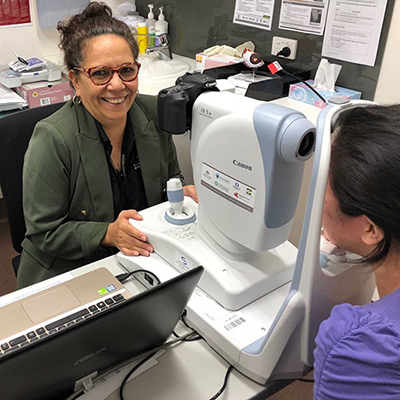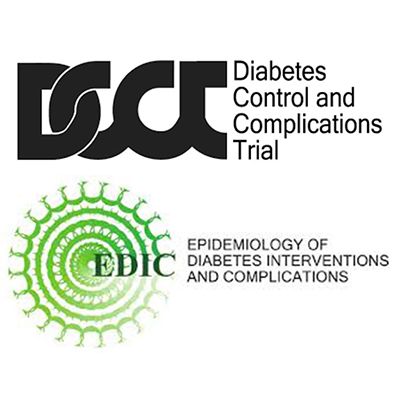The Fenofibrate Intervention and Event Lowering in Diabetes (FIELD) Trial
The FIELD Trial led by Prof. Anthony Keech, evaluated 9795 adults with Type 2 diabetes taking for an average of 5-years fenofibrate (a blood fat lowering tablet) or placebo (inactive tablet). Whilst the primary cardiovascular end-point of the trial was not positive there were cardiovascular benefits for some subgroups, such as those with high triglyceride / low HDL-C levels. On a very positive note, fenofibrate had major benefits to prevent lower limb amputations, to retard the development of sight-threatening diabetic eye damage and of diabetic kidney and nerve damage. Ongoing studies are evaluating the relationship of many novel biochemical and molecular risk factors to health outcomes for people with Type 2 diabetes. Ongoing research includes evaluating the value of novel blood tests (biomarkers) such as telomeres, lipidomics, proteomics, microRNAs and mRNAs.

T4DM
Middle aged and elderly men with low testosterone levels and with pre-diabetes (in which blood glucose levels are above normal but not as high as diagnostic levels for diabetes) are at high risk of developing Type 2 diabetes. Lifestyle measures can retard the development of Type 2 diabetes, but it is not clear if testosterone replacement in such men is even more effective. The T4DM study led by Prof. Gary Wittert, randomised 1000 middle age or older men with low testosterone and pre-diabetes or early Type 2 diabetes to lifestyle alone, including Weight Watchers plans with either testosterone replacement of placebo. The study outcomes (rates of Type 2 diabetes) will be reported soon in 2020.

Reversing with Metformin Vascular Adverse Lesions (REMOVAL)
People with Type 1 diabetes are at increased risk of atherosclerosis (hardening of the arteries), which can lead to heart attacks, stroke and amputation. Paralleling the general population more people with Type 1 diabetes are overweight or obese, which is associated with the development of some feature such as insulin resistance and lipid (blood fat) problems more commonly associated with Type 2 diabetes. Because of this many groups are exploring the addition of glucose control treatments usually used in Type 2 diabetes care to the essential insulin for Type 1 diabetes. High heart disease risk adults with Type 1 diabetes were prescribed metformin vs. placebo for a mean of 3-years. Metformin was associated with slowing of artery damage (in the carotid arteries in the neck) and also reduced progression of kidney damage.

Hybrid Closed Loop (insulin pump) trial
In people with Type 1 diabetes tight glucose control protects against diabetes complications and improves some aspects of quality of life. Hybrid Closed Loop (HCL) systems include an insulin pump and a continuous glucose monitor that measures glucose levels in the tissue under the skin and controls the rate of insulin delivery. Led by Prof. David O’Neal in 7 Australian sites in 140 adults with Type 1 diabetes the effects of 6-months HCL pump use (compared to multiple daily insulin injections) is being studied. Study outcomes relate to various aspects of glucose control, sleep quality, mental well-being, risk factors for vascular disease and driving safety. Results are being analysed and will be reported in 2020. A similar multi-site study, led by Prof. Tim Jones is being conducted in 120 children with Type 1 diabetes will complete in 2020.

Fenofibrate and Microvascular End-Points in Type 1 diabetes – FAME-1 Eye
Diabetic eye disease (retinopathy) is usually present in most people with Type 1 diabetes after 15-20 years of diabetes, and can progress to vision loss. Tight glucose control can retard the development or progression of eye damage, but is often difficult to achieve. There are proven treatments applied to the eye for advanced diabetic eye disease (such as laser treatment or ‘anti-VEGF’ or steroid injections), but as yet there is no proven treatment to retard progression of early to moderate diabetic retinopathy. The FIELD trial (and ACCORD Lipid Eye) trial showed that fenofibrate retards eye, kidney and nerve complications in adults with Type 2 diabetes. FAME-1 Eye is the first Type 1 diabetes specific study to evaluate fenofibrate effects on eye damage in adults with Type 1 diabetes. We are recruiting 450 adults with Type 1 diabetes and early diabetic retinopathy to take a daily fenofibrate or an inert tablet (placebo) for an average of 3-years.

New Model of Care for Diabetic Retinopathy in Indigenous Australians
The integrated Diabetes Education and diabetic Eye disease Screening [iDEES] project is a novel model of camera-based diabetic retinopathy screening and diabetes education consultation offered to all patients diagnosed with diabetes attending participating Indigenous primary health care services and a hospital-based endocrinology clinic in regional and metropolitan Victoria.

Australia China Grant
Risk factors for diabetes complications may vary between people of different ethnicities. Study groups in Australia and in China are comparing results of levels of traditional and novel risk factors for the complications of Type 2 diabetes in very large cohorts. This research is funded by the Australian NHMRC and the National Science Foundation (China).

DCCT-EDIC Trial
The Diabetes Control and Complications Trial (DCCT) was a multicenter, randomized clinical trial designed to compare intensive with conventional diabetes therapy with regard to their effects on the development and progression of the early vascular and neurologic complications of type 1 insulin-dependent diabetes mellitus. The DCCT study involved 1,441 participants, ages 13 to 39, with type 1 diabetes and either no or minimal background retinopathy.
The Epidemiology of Diabetes Interventions and Complications (EDIC) study was initiated as follow-up to examine the long-term effects of the original DCCT interventions on diabetic complications such as cardiovascular events and advanced retinal and renal disease. Over 90 percent of participants from the DDCT study were followed by the EDIC study.
